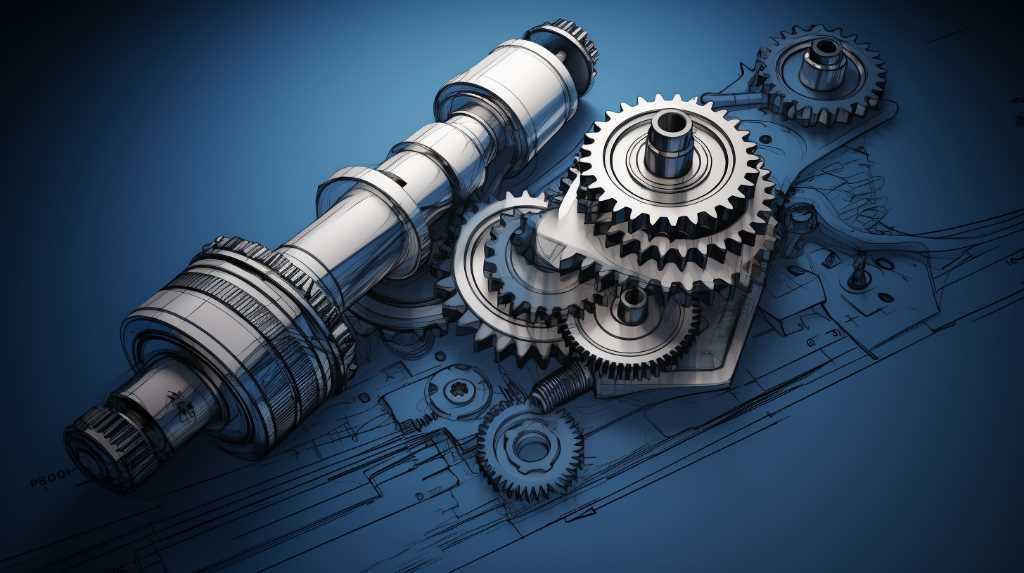Mechanical Engineering Careers: A Comprehensive Guide
Mechanical engineering is a diverse and dynamic field that spans multiple industries and offers a range of career opportunities. As one of the core branches of engineering, mechanical engineering focuses on designing, analyzing, and manufacturing mechanical systems. This article provides an in-depth exploration of mechanical engineering careers, covering various specializations, career paths, educational requirements, and prospects.
1. Introduction to Mechanical Engineering
Mechanical engineering is often described as the branch of engineering that applies the principles of physics and material science to design, analyze, manufacture, and maintain mechanical systems. This field encompasses a broad range of applications, from the aerospace and automotive industries to the energy and manufacturing sectors. Mechanical engineers are involved in creating and improving products, processes, and systems that impact everyday life.
Core Responsibilities
- Design and Analysis: Mechanical engineers design components and systems, ensuring they meet required specifications and performance criteria. This involves using computer-aided design (CAD) software and conducting simulations.
- Manufacturing and Production: They oversee the manufacturing process, including material selection, production techniques, and quality control.
- Testing and Evaluation: Mechanical engineers test prototypes and finished products to ensure they function as intended and meet safety and performance standards.
- Maintenance and Improvement: They analyze system failures and devise solutions to improve performance and reliability.
Electrical Engineering Careers: Exploring Opportunities and Paths
2. Career Specializations in Mechanical Engineering
Mechanical engineering offers a variety of specializations, each with its own set of challenges and opportunities. Some of the most prominent areas include:
2.1 Aerospace Engineering
Aerospace engineers design and develop aircraft, spacecraft, and related systems. They work on projects ranging from commercial aeroplanes to space exploration vehicles.
- Key Responsibilities: Aircraft design, propulsion systems, avionics, and aerospace materials.
- Skills Required: Knowledge of aerodynamics, propulsion, and structural analysis.
2.2 Automotive Engineering
Automotive engineers focus on designing and improving vehicles, including cars, trucks, and motorcycles. They work on aspects like engine performance, fuel efficiency, and safety features.
- Key Responsibilities: Vehicle design, engine development, safety systems, and performance testing.
- Skills Required: Understanding of automotive systems, materials science, and computer-aided engineering.
2.3 Energy Systems Engineering
Energy systems engineers work on the development and optimization of energy production and consumption systems. This includes renewable energy sources, power plants, and energy-efficient technologies.
- Key Responsibilities: Designing energy systems, improving efficiency, and integrating renewable energy sources.
- Skills Required: Knowledge of thermodynamics, fluid mechanics, and energy conversion technologies.
2.4 Robotics Engineering
Robotics engineers design and develop robotic systems used in manufacturing, healthcare, and other fields. They focus on creating robots that can perform tasks autonomously or with minimal human intervention.
- Key Responsibilities: Designing robotic systems, programming, and integrating sensors and control systems.
- Skills Required: Robotics, control systems, and computer programming.
2.5 Thermal and Fluid Sciences
Engineers specializing in thermal and fluid sciences work on systems involving heat transfer, fluid dynamics, and thermal management. They often work in industries like HVAC (heating, ventilation, and air conditioning) and cryogenics.
- Key Responsibilities: Designing thermal systems, analyzing fluid flow, and managing heat transfer processes.
- Skills Required: Knowledge of thermodynamics, fluid dynamics, and heat transfer principles.

3. Educational Requirements and Pathways
3.1 Bachelor’s Degree
A bachelor’s degree in mechanical engineering or a related field is the foundational requirement for a career in mechanical engineering. This degree typically covers subjects such as mechanics, thermodynamics, materials science, and control systems.
- Typical Coursework: Dynamics, mechanics of materials, fluid mechanics, and thermodynamics.
- Hands-On Experience: Laboratory work, design projects, and internships are often part of the curriculum.
3.2 Master’s Degree
While not always required, a master’s degree can provide advanced knowledge and open doors to specialized career paths. It is often pursued by those looking to focus on a specific area of mechanical engineering or seek roles in research and development.
- Specializations: Advanced topics in areas such as robotics, aerospace, or energy systems.
- Research Opportunities: Master’s programs often involve a thesis or research project.
3.3 Professional Licensure
In many countries, mechanical engineers may need to obtain a professional engineering license to practice independently or offer services to the public. In the United States, this is known as the Professional Engineer (PE) license.
- Requirements: Typically includes passing the Fundamentals of Engineering (FE) exam, gaining relevant work experience, and passing the PE exam.
- Benefits: Enhances career prospects and credibility in the field.
4. Career Pathways and Opportunities
Mechanical engineering offers a wide range of career opportunities across various industries. Here are some common career paths:
4.1 Design Engineer
Design engineers focus on creating and refining mechanical components and systems. They use CAD software to develop detailed designs and prototypes.
- Typical Employers: Manufacturing companies, aerospace firms, and automotive manufacturers.
- Skills Required: CAD software proficiency, creativity, and problem-solving.
4.2 Systems Engineer
Systems engineers oversee the integration of complex systems, ensuring that all components work together effectively. They are involved in the planning, design, and implementation phases of projects.
- Typical Employers: Aerospace companies, defence contractors, and industrial firms.
- Skills Required: Systems integration, project management, and analytical skills.
4.3 Manufacturing Engineer
Manufacturing engineers focus on optimizing production processes and improving manufacturing efficiency. They work on process design, equipment selection, and quality control.
- Typical Employers: Production facilities, automotive manufacturers, and electronics companies.
- Skills Required: Process engineering, production techniques, and quality management.
4.4 Research and Development Engineer
R&D engineers work on developing new technologies and products. They are involved in experimental work, testing, and innovation.
- Typical Employers: Research institutions, technology companies, and advanced manufacturing firms.
- Skills Required: Research skills, innovation, and technical expertise.
4.5 Consulting Engineer
Consulting engineers provide expert advice on mechanical engineering projects. They may work independently or as part of a consulting firm, offering services such as system design, analysis, and troubleshooting.
- Typical Employers: Consulting firms, government agencies, and private companies.
- Skills Required: Technical expertise, communication skills, and client management.

5. Industry Trends and Future Prospects
5.1 Automation and Robotics
The rise of automation and robotics is transforming the manufacturing industry. Mechanical engineers are increasingly involved in designing and implementing robotic systems and automated processes.
- Impact: Increased efficiency, reduced labour costs, and enhanced precision.
- Future Outlook: Continued growth in robotics applications across various sectors.
5.2 Renewable Energy
As the world shifts towards sustainable energy sources, mechanical engineers play a crucial role in developing and optimizing renewable energy systems, such as wind turbines and solar panels.
- Impact: Reduction in carbon emissions, increased energy sustainability.
- Future Outlook: Expansion of renewable energy technologies and increased demand for energy systems engineers.
5.3 Advanced Materials and Manufacturing
Advancements in materials science and manufacturing technologies are driving innovation in product design and production. Mechanical engineers are exploring new materials and techniques, such as additive manufacturing (3D printing).
- Impact: Enhanced product performance, and new manufacturing capabilities.
- Future Outlook: Growth in the use of advanced materials and manufacturing methods.
5.4 Internet of Things (IoT)
The integration of IoT technology into mechanical systems is creating opportunities for smarter and more connected products. Mechanical engineers are working on systems that leverage IoT for improved performance and data analysis.
- Impact: Enhanced connectivity, real-time monitoring, and data-driven decision-making.
- Future Outlook: Increased adoption of IoT in various applications, including smart homes and industrial automation.
Mechanical engineering is a versatile and evolving field with numerous career opportunities. From aerospace to energy systems, the breadth of specializations offers something for everyone interested in designing and improving mechanical systems. With advancements in technology and growing demands for sustainable solutions, the future of mechanical engineering is promising and full of potential.
Whether you are just starting your journey in mechanical engineering or looking to advance in your career, understanding the various specializations, educational pathways, and industry trends will help you navigate and succeed in this dynamic field.





Post Comment